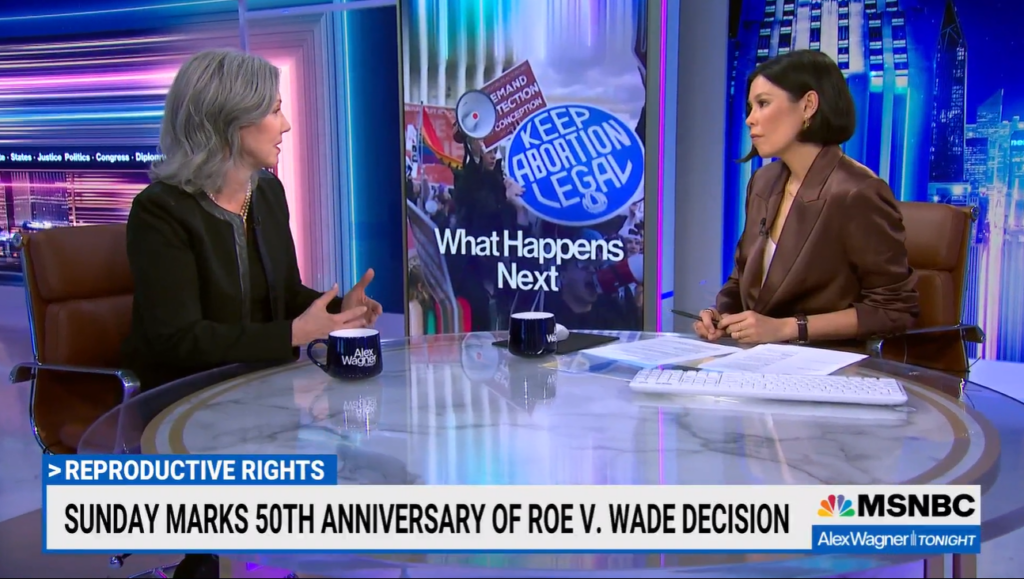Backlash against anti-abortion laws produces new legal strategies, more secure rights
In this interview with Alex Wagner on MSNBC about the 50th anniversary of Roe v. Wade, Center President and CEO Nancy Northup discusses the legal battlefield for abortion rights in the U.S., as well as how the backlash against the overturning of Roe v. Wade is producing more secure reproductive rights guarantees in some states.

More media coverage
MSNBC: Ali Velshi, 01.22.23
The 50th anniversary of Roe v. Wade, is “a day of mixed emotions,” says Northup. “It’s a day of both concern and real energy.”
“This is the first time in 50 years where women do not have the right to make decisions in 12 states where abortion is totally banned under threat of criminal prosecution,” said Northup. “I’m sitting here at this Roe anniversary thinking about some things that are quite chilling, which we have to pay attention to, but some things that are in fact heartening. We are seeing states find protections for reproductive rights that didn’t exist before.”
Northup encouraged viewers to stay alert to the possibility of a federal abortion ban, drawing attention to a lawsuit recently filed in Texas that seeks to ban medication abortion nationwide. “I would not underestimate anything that might happen with respect to a national ban,” Northup said. “[Anti-abortion advocates] have made it clear that this is not the end.”
Ms. Magazine: “Feminists React: 50 Years After Roe, the Fight Is Far From Over,” 01.21.23
“The reversal of Roe v. Wade was the biggest setback for women’s rights in U.S. history,” says Northup.
Northup also pointed out that since the overturning of Roe v. Wade, voters have made their support for abortion rights clear. “We’ve always known that the vast majority of Americans support the right to access abortion care, and we saw it at the polls,” Northup said. “I think that is going to have some mitigating effect, but the reality is, we need to get the rights back. That’s what we’re working so hard on in these strategies to get state constitutions to recognize the right to reproductive autonomy. And we have that now in Michigan, California, Vermont—that language didn’t exist before in any constitution. Reproductive autonomy and reproductive freedom is now the language in those states’ constitutions.”
“I think at the end of the day, they’re going to rue the day that they reversed Roe v. Wade,” Northup added. “The rights are going to be stronger.”



